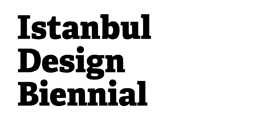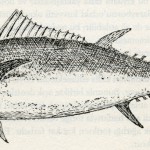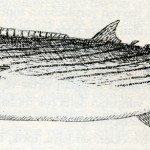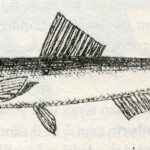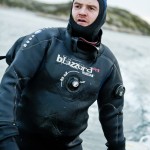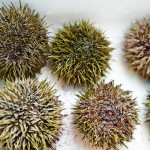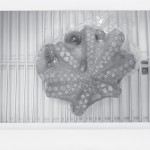Thank you for your interest in the 1st Istanbul Design Biennial. Please visit tasarimbienali.iksv.org/en for news regarding the 2nd Istanbul Design Biennial, to be held between 1 November and 14 December 2014.
October 13th—December 12th 2012
Online journal of
the first edition of the
Istanbul Design Biennial,
curated by Emre Arolat
and Joseph Grima
December 10, 2013
1st Istanbul Design Biennial Has Ended
Posted by İKSV on December 10, 2013
http://1tb.iksv.org/1st-istanbul-design-biennial-has-ended/
September 23, 2013
NCR-10 [Fish]: Hamsi Crisps with Olive Oil Bread

A recipe from Mikla Restaurant
Ingredients Makes 20 pieces
300 grams All Purpose Flour
15grams Fresh Yeast
30ml Extra Virgin Olive Oil
8grams Sea Salt
160ml Warm Water
20 pieaces Double Hamsi Fillets, cleaned, skin on
25grams Clarified Butter
to taste Fine Sea Salt
to taste Cracked Black Pepper
To make olive oil bread
1. Preheat the oven to 200C.
2. Add yeast to warm water and mix well.
3. Add salt and 10ml of olive oil.
4. Sift flour in and mix until it forms a smooth textured dough.
5. Knead dough on work bench until smooth and shiny.
6. Put the dough in a deep oven proof pan that has been brushed with olive oil.
7. Press out the dough into the corners and edges of the pan.
8. Smother the remaining oil over the dough.
9. Cover and allow to rest at room temperature for 20 minutes.
10. Bake the bread for approximately 40 minutes at 200 C. No fan just top and bottom heat.
11. Allow the bread to rest on a rack over night. It will get a bit stale.
12. Slice itthinly, approximately 2-3 mm.
13. Cut the bread slices into rectangular shapes to fit you fish. Approximately 9 x 5cm.
To assemble Hamsi crisps
1. Place the sliced olive oil bread on a baking paper.
2. Season the Hamsi fillets with sea salt and black pepper.
3. Place one double fillet on each piece of bread. Skin side down and flatten. Wrap in cling film and keep in fridge for 4 hours. Hamsi filletsshould stick to the bread.
4. Melt clarified butter in a nonstick pan over medium heat.
5. Add bread and with the Hamsi on top.
6. Sear until the bread becomes crispy and light brown. Cook on one side only otherwise the Hamsi will dry out.
Posted by İKSV on September 23, 2013
http://1tb.iksv.org/ncr-10-fish-hamsi-crisps-with-olive-oil-bread/
September 23, 2013
NCR-10 [Fish]: “Tohum İzi Association” Earth and Sea
Olcay Bingöl from “Tohum İzi Association”

This paper on sustainable fisheries, marine reserves starts by referring to concepts such as agricultural production, farmers, global warming and ecological crisis. Please note that is not due to author’s confusion but a deliberate approach. For many years natural assets such as ground and underground water resources, seeds, land, sea, lakes, are considered by industrialized agriculture and the fishing industry as resources and with this regard they have come under the ownership of industrial capital.
Posted by İKSV on September 23, 2013
http://1tb.iksv.org/ncr-10-fish-tohum-izi-association-earth-and-sea/
September 23, 2013
NCR-10 [Fish]: Prohibitations Affect on Local Culture
A text by Tangör Tan from the pages of the last issue of the New City Reader “Fish”
Photos: Courtesy of Aras Press ”Fish and Fishery in Turkey”, Karekin Devedjian, a re-edition of the 1926 publication, © 2006
Fisheries policies since the beginning of the 20th century was modeled on a holistic perspective as was the approach on civil society organizations, international politics, individual initiatives and state of the economies. Hence as this modeling did not inhibit the exploitation of resources the outcome resulted in extinguishing of the existence of different nations, origins and communities.
Posted by İKSV on September 23, 2013
http://1tb.iksv.org/ncr-10-fish-prohibitations-affect-on-local-culture/
September 19, 2013
NCR-10 [Fish]: Steven Spielberg Pisses Me Off!

A text by Mehmet Gürs from the pages of Fish, 10th and final issue of the New City Reader.
Get you numbers straight and then you’ll get why…
Today “An eye for an eye” is apparently not enough!! We need more blood…
We have to kill at least 25 million sharks for each human killed by a shark.
Go to any beach in the world, including the feared South African and Australian ones and you’ll find many, many, many more people that drown, smack their head or just croke some other way other than being eaten by a shark. Period! That’s a fact!
We all know the statistics of Shark vs. Toaster… Duh!!
But for some messed up reason we still comfortably put the pseudo bread in the toaster every morning and smear some weird chemicals on in posing as fat and eat comfortably thinking it’s safe.While at the same time we are still scared of the amazing creatures that has been around for over 400 millions of years, long before dinosaurs and obviously us. We get all glossy eyed when watching Avatar, but then again, that’s the movies.
Posted by İKSV on September 19, 2013
http://1tb.iksv.org/ncr-10-fish-steven-spielberg-pisses-me-off/
September 18, 2013
NCR-10 [Fish]: Interview with Roderick Sloan
Roderick Sloan is the man supplying Noma and other top eateries with its sea urchins,he lives in a tiny village way up north and dives into insanely cold water. Roderick is a 42 year old Scotsman that moved to Norway 15 years ago after falling in love. 5 years laterhe and his lovely wife moved to arctic Norway to begin fishing sea urchins. Rod is considered a young man in his village of 80 people. Nordskot, in the municipality of Steigen, is surrounded by mountains on one side and a chain of islands to west that protects them from the huge sea rolling in from the fierce North Atlantic in the winter. They have an abundance of wildlife all around them. Anything from moose, reindeer and otter to sea eagles and grouse. For Rod however, the real action is at sea, where he spend a lot of time. On an average day he sees sea eagles, otters, seals and obviously a lot of fish when he is diving. Seeing Orcas on the way to work is must be amazing!
We asked Roddie a few questions about his life, work and passion. Read on to find out what a passionate guy and a pint stout can come up with…
Posted by İKSV on September 18, 2013
http://1tb.iksv.org/ncr-10-fish-interview-with-roderick-sloan/
September 17, 2013
NCR-10 [Fish]: Fish is a fishy thing…
Last issue of the New City Reader Istanbul edition is out! Titled “Fish” the 10th issue is guest edited by Mehmet Gürs with contributions by Olcay Bingöl, Roedrick Sloan and Tangör Tan.

Click for Mehmet Gürs’ editorial text
Posted by İKSV on September 17, 2013
http://1tb.iksv.org/ncr-10-fish-fish-is-a-fishy-thing/
April 15, 2013
NCR-09 [Economy]: What Does “Waste” Worth?
Erdem Üngür and Işık Gülkaynak’s text for 9th issue of the New City Reader.

To whom does an object belong, once it becomes the personal property of a consumer and is then discarded? For what reason has the municipality organized a raid on informal waste collectors? Does garbage belong to the finder, or is everything abandoned on the streets considered state property? Does the former owner of an item also have the privilege of owning itas garbage? Whenathoughtful citizen collects discarded newspapers from her building and takes them to a paper factory,should we consider her a thief?
The tedious and everlasting processes that transform villages into towns, towns into cities, and cities into metropolises, as the population grows and density increases, have for centuries sheltered the newcomer, provided for the increasing needs of original inhabitant, and supported the emergence of increasingly personalized lines of work. The industrial developments and resurgent capitalismof recent years have changed the quality of consumed products and promoted an increase in their quantity. The discovery that the consumed object does not actually complete its life, but can be reused, enabled the emergence of the recycling/recovery market. With the breakdown in ecological equilibrium and the depletion of the world’s natural resource reserves, this market, hence “waste”, is becoming increasingly valuable. Furthermore, this value is of considerable substance, especially considering the irresolvable conflicts experienced by legal and illegal systems that aim to generate revenue from waste.
Posted by İKSV on April 15, 2013
http://1tb.iksv.org/ncr-09-economy-what-does-waste-worth/
April 14, 2013
NCR-09 [Economy]: The Still Alternative
From the pages of the 9th issue of the New City Raeder comes a text by Vincent Schipper, one of the founders of (Monnik)
In the midst of this recession, we are bombarded with facts and figures of decreased growth and rapid declines. We are repeatedly reminded that growth is our only salvation. Anything else would mean financial meltdown, literally the end of all things good. But let us consider a possibility where this is not the case.
Still•ness (adjective) — a dynamic and innovative culture that is not based on growth. It can be understood as a sustainable and inclusive society. A still society is a society that has left behind the more negative connotations of the notion of growth, and has established post-expansion, post-depletion and post-exploitation values and practices. These values and practices may already be present.
Posted by İKSV on April 14, 2013
http://1tb.iksv.org/ncr-09-economy-the-still-alternative/
April 10, 2013
NCR-09 [Economy]: Over Indetifiying Products and Production
A text by Freek Lomme from the 9th issue of the New City Reader “Economy” edited by Unfold

A leap into a global future beyond local post-industrial conditions, alongside Eindhoven design firm Lucas Maassen & Sons.
The new frontiers for contemporary design, those which establish our states of being, have relocated. Change is inevitable and necessary, as free producers set their sights on further and further limits.
Posted by İKSV on April 10, 2013
http://1tb.iksv.org/ncr-09-economy-over-indetifiying-products-and-production/

